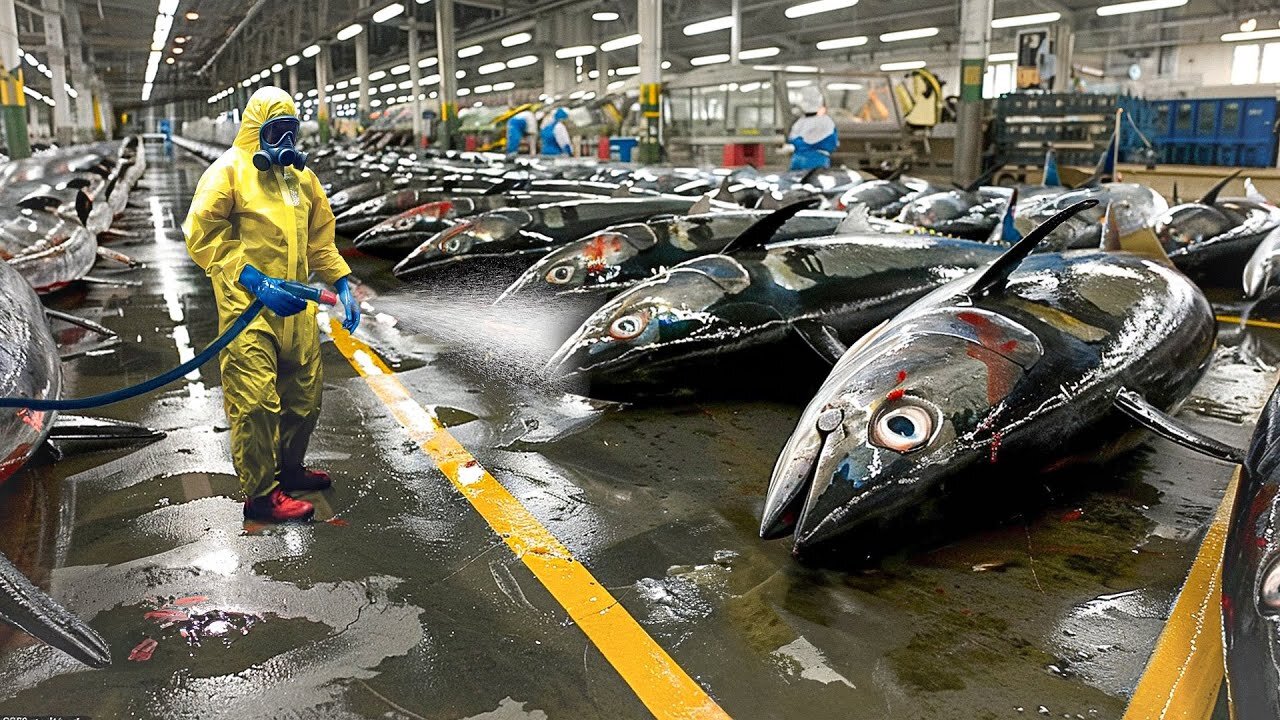Premium Only Content

Aquaculture Cruelty: Ethical Concerns in Fish Farming
Aquaculture, the practice of farming aquatic organisms like fish, shellfish, and seaweed, has grown rapidly as a solution to meet the rising demand for seafood. However, aquaculture cruelty is a significant concern that highlights the ethical and welfare issues associated with this industry. Fish and other aquatic animals in aquaculture systems are often subjected to overcrowded conditions, poor water quality, and inadequate veterinary care, leading to high stress levels, disease, and suffering.
One of the primary issues of aquaculture cruelty is the dense stocking densities in fish farms. These crowded environments restrict the natural behaviors of fish, causing stress and increasing the spread of diseases. In many instances, fish are kept in cages or tanks with little room to move, leading to physical injuries and poor health. Additionally, the quality of water in these systems can deteriorate rapidly, further exacerbating the stress and health issues faced by the animals.
Another aspect of aquaculture cruelty involves the handling and transport of fish. During these processes, fish are often subjected to rough handling, leading to injuries and increased mortality rates. The lack of regulations and oversight in many regions means that fish may not receive proper care or humane treatment throughout their lives.
Moreover, the methods used for harvesting fish can be particularly inhumane. Practices such as stunning, asphyxiation, or live gutting are commonly employed, causing prolonged suffering before death. This raises significant ethical concerns about the welfare of fish and other aquatic animals in the industry.
Furthermore, the use of antibiotics and chemicals to control diseases in aquaculture can have detrimental effects on both the environment and the health of the animals. Overuse of these substances can lead to antibiotic resistance, posing a risk to both animal and human health.
Addressing aquaculture cruelty requires stricter regulations, better welfare standards, and increased public awareness. Promoting sustainable and humane practices in aquaculture is essential to ensure the welfare of aquatic animals and the long-term viability of the industry.
Website: https://cruelty.farm
-
 LIVE
LIVE
LFA TV
13 hours agoLFA TV ALL DAY STREAM - WEDNESDAY 7/30/25
5,096 watching -
 LIVE
LIVE
JuicyJohns
1 hour ago $0.85 earned🟢#1 REBIRTH PLAYER 10.2+ KD🟢$500 GIVEAWAY
134 watching -
 53:02
53:02
The Official Corbett Report Rumble Channel
13 hours agoHow to Leave the Cage - #SolutionsWatch
1.77K2 -
 LIVE
LIVE
Outspoken with Dr. Naomi Wolf
16 hours ago"Jonathan Pollard: Are Allies of Israel being Targeted?"
125 watching -
 1:29:49
1:29:49
Game On!
17 hours ago $1.51 earned10,000 Followers Celebration Stream! Let's Talk Sports!
30.6K2 -
 15:38
15:38
SKAP ATTACK
19 hours ago $2.78 earnedA Legacy Tainted: Unpacking the LeBron Steroid Rumors
35K12 -
 2:04:52
2:04:52
The Confessionals
22 hours agoThe Great Spiritual Hijack — And Why It’s Ending
23.3K6 -
 1:49:30
1:49:30
Nick Freitas
15 hours agoHere's Why The Housing Market Is Permanently Broken
22.5K3 -
 17:03
17:03
Nicholas Bowling
20 hours ago $1.31 earned"Celebrity" Tells Street Preacher His Dad's in the ILLUMINATI
18.7K4 -
 2:01:09
2:01:09
BEK TV
22 hours agoTrent Loos in the Morning - 7/30/2025
18.2K